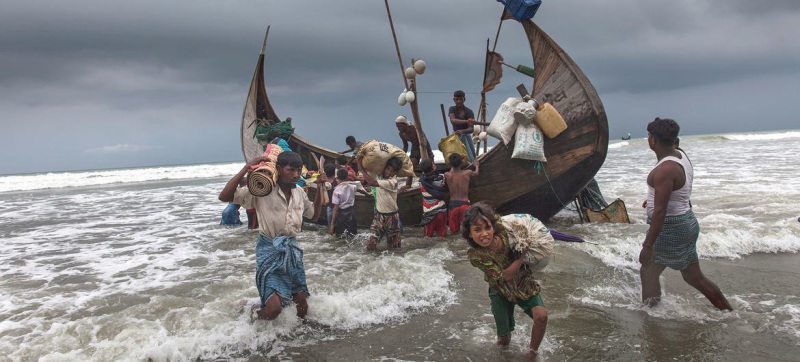- Stocks end week sharply lower as DSE, CSE indices tumble |
- 'Not all collections in the road transport sector is extortion': Sk Rabiul |
- Zubaida, Zaima take iftar with orphan students |
- Dhaka ranks second among world’s most polluted cities Friday |
- Dhaka to maintain ties with all countries with dignity |
Rohingya Crisis Dominates UN Summit Amid Aid Shortfall

Rohingya refugees arrive in Cox’s Bazar, Bangladesh, after fleeing Myanmar. Their plight will be in focus at this week’s UN high-level conference. (file photo)
More than eight years after over 750,000 Rohingya Muslims fled Myanmar to camps in Bangladesh, the crisis remains unresolved. On Tuesday, world leaders, UN officials, and civil society groups will gather in New York for a high-level summit to address both the humanitarian emergency and the geopolitical deadlock that sustains it.
The stakes are high: shrinking aid budgets and intensifying conflict in Myanmar have left one of the world’s most persecuted minorities in limbo. Delegates are expected to discuss human rights protections, political and security measures, and the safe, voluntary return of refugees.
Despite hopes for resolution, new arrivals continue to reach Bangladesh, compounding suffering in what is now the world’s largest refugee settlement in Cox’s Bazar.
Chief Adviser of Bangladesh’s interim government, Muhammad Yunus, warned of a looming collapse. He said the World Food Programme may be forced to cut rations to just $6 per person without urgent new funding.
UN Secretary-General António Guterres, who visited Cox’s Bazar earlier this year, called the camps a “stark reminder of the world’s collective failure” and urged continued support until safe conditions exist in Myanmar for repatriation.
Myanmar’s 2021 coup has deepened instability, with ongoing violence, widespread displacement, and systematic abuses against minorities, including the Rohingya.
As the summit unfolds, the key question remains whether the global community can muster the political will to resolve a crisis that has come to symbolise international paralysis.

